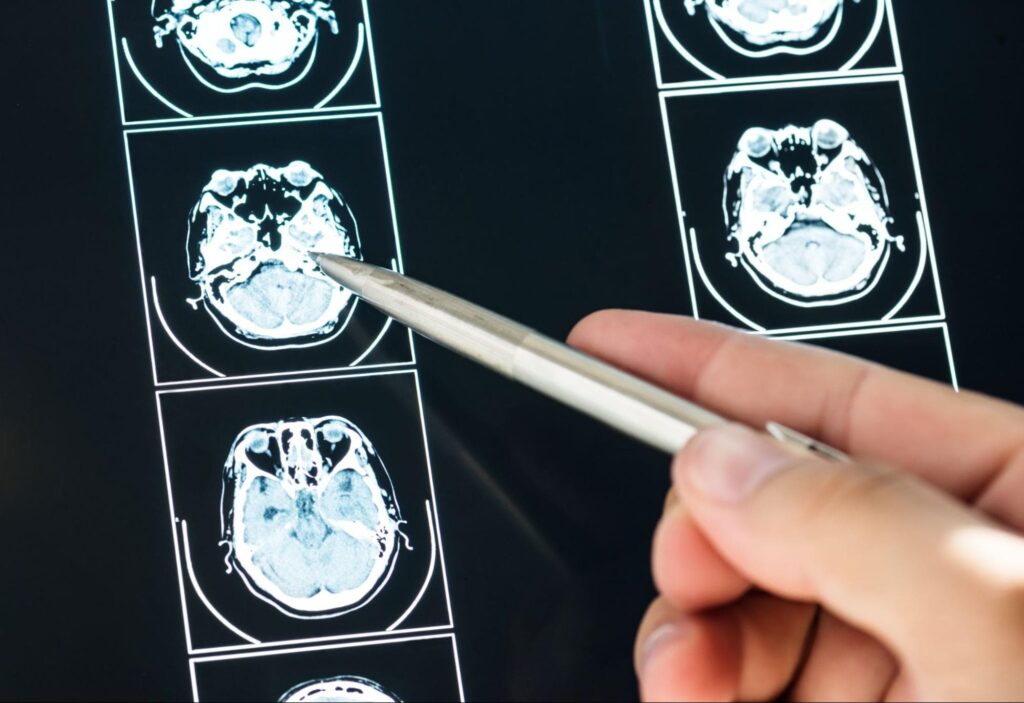Understanding Brain Tumor: Symptoms, Causes, and Treatments

Understanding brain tumor is crucial, as it represents a significant health concern that can profoundly affect individuals. A brain tumor is defined as an abnormal growth of cells in the brain or surrounding tissues, which can be benign (non-cancerous) or malignant (cancerous). Awareness of this medical condition is essential not only for early detection but also for treating affected individuals effectively. By gaining insights into brain tumors, one can appreciate their impact on health and well-being.
Signs and Symptoms of Brain Tumor
Observing signs and symptoms of brain tumors is vital for timely diagnosis. Common symptoms include severe morning headaches, nausea, and visual disturbances such as blurry vision or double vision. Additionally, other symptoms can manifest based on the tumor’s location. For example, tumors in the cerebral cortex may affect motor skills, causing loss of feeling or movement in limbs, while tumors near the pineal gland might disrupt sleep patterns.
Location-specific symptoms can have a substantial impact on quality of life. Cognitive changes, including confusion and memory problems, alongside personality shifts, are also pivotal signs. Those experiencing any of these brain tumor symptoms should seek medical advice promptly to initiate appropriate evaluations and diagnoses.
Common Symptoms
Headaches, often worse in the mornings, are frequently linked to brain tumors. Other common symptoms can include fatigue, difficulty with balance, and seizures. Understanding these symptoms is essential for raising awareness and promoting proactive healthcare measures.
Causes of Brain Tumor
Brain tumors can arise from a variety of causes, although many remain unknown. Several pivotal factors that may increase the risk of developing a brain tumor include genetic predispositions, environmental exposures, and certain health conditions.
- Genetic Factors: Specific inherited conditions significantly elevate the risk of brain tumors. Syndromes such as neurofibromatosis, tuberous sclerosis, and Li-Fraumeni syndrome are known contributors. These syndromes are characterized by DNA mutations that are passed from parents to children, increasing susceptibility to neoplasm formation.
- Radiation Exposure: Individuals exposed to ionizing radiation, which could stem from previous cancer treatments or environmental sources, face a heightened risk. Research indicates that radiation therapy, particularly for other cancers, can lead to the development of secondary brain tumors.
- Family History: A familial history of brain tumors may suggest an inherited risk, although such cases remain rare. Understanding these risks can be essential for monitoring and early detection.
- Race and Ethnicity: Certain types of brain tumors, including gliomas and meningiomas, vary in prevalence between races, underscoring potential genetic and environmental factors.
Diagnosis and Testing for Brain Tumor
The diagnosis of brain tumors involves several systematic steps to identify the tumor type and its implications for treatment. Essential components of this diagnostic process include:
- Neurological Examination: This exam assesses various functions including vision, balance, coordination, and reflexes, helping healthcare professionals identify neurological deficits associated with tumors.
- Magnetic Resonance Imaging (MRI): MRI is the primary tool for visualizing brain tumors, providing detailed images crucial for diagnosis and treatment planning.
- Computed Tomography (CT) Scan: CT scans are often employed in emergency situations to quickly assess the brain.
- Biopsy: This procedure involves extracting a small sample of tumor tissue, enabling pathologists to classify the tumor as benign or malignant.
- Genetic Counseling: For individuals with potential genetic risk factors, counseling may offer insights regarding hereditary cancer predispositions and personalized testing paths.
- Additional Testing: Techniques such as PET scans or spinal taps might be necessary for comprehensive evaluation and effective treatment planning, significantly aiding in understanding the tumor’s characteristics.
Complications of Brain Tumor
Brain tumors can lead to a wide range of complications depending on their size, type, and location. One of the most common complications is increased intracranial pressure, which may cause severe headaches, nausea, vomiting, and blurred vision. Tumors can also interfere with normal brain function, leading to seizures, memory loss, difficulty concentrating, or changes in personality and behavior. In some cases, a tumor may compress specific brain regions, resulting in weakness or numbness on one side of the body, speech difficulties, or impaired coordination and balance.
Additionally, brain tumors may cause fluid buildup in the brain (hydrocephalus), which can further worsen symptoms and require urgent medical intervention. Even after treatment, such as surgery, radiation, or chemotherapy, patients may face long-term complications like cognitive decline or neurological deficits. Early diagnosis and timely treatment are essential to reduce these risks and improve quality of life.
Treatment Options for Brain Tumor

Treatment options for brain tumors vary significantly based on the tumor’s type, size, and location. Typical modalities include surgery, which is frequently the first-line approach aimed at excising as much of the tumor as possible. Surgical interventions can range from complete resection to debulking procedures designed to alleviate pressure on the brain.
When surgery alone is insufficient, radiation therapy is applied to target and eradicate residual tumor cells. This treatment is particularly effective against aggressive tumors, as it helps to prevent recurrence. Chemotherapy is also an integral component, employing drugs designed to kill cancer cells throughout the body and manage systemic aspects of brain cancer.
Additionally, advancements such as stereotactic radiosurgery focus highly concentrated doses of radiation on specific brain regions, minimizing damage to surrounding tissue. Targeted drug therapy represents another innovative approach, utilizing agents that target specific molecular pathways involved in tumor growth. Notably, supportive therapies are crucial for managing symptoms associated with the tumor and its treatment, thereby enhancing the patient’s overall quality of life.
Surgical Interventions
When examining surgical interventions for brain tumors, it is essential to consider various types of surgeries that can be performed. These typically include craniotomy, where a section of the skull is removed, and tumor removal is attempted. The risks associated with surgical procedures include infection, neurological deficits, and potential complications from anesthesia. However, the benefits often outweigh the risks for operable tumors, particularly when swift action can halt progression.
Radiation Therapy
Radiation therapy involves utilizing high-energy waves to kill tumor cells. Different forms of radiation, including external beam radiation and brachytherapy, are employed based on individual cases. This treatment effectively shrinks tumors and mitigates symptoms by controlling growth and alleviating pressure on the brain.
Chemotherapy
Incorporating chemotherapy into brain tumor management typically involves using a combination of agents. These medications are often tailored to the tumor’s histological characteristics, and common drugs include temozolomide and carmustine. The role of chemotherapy is vital, especially in treating malignant brain tumors, as it targets systemic cancer cells, enhancing the chances of survival.
Early Detection of Brain Tumor is Key to Better Outcomes
Understanding brain tumors is crucial due to their significant impact on individuals’ health and well-being. The diagnosis involves neurological examinations, imaging tests, and biopsies, while treatment options include surgery, radiation therapy, and chemotherapy. Genetic factors and radiation exposure increase risk, and symptoms vary based on tumor location.
Recent advancements, such as personalized medicine and targeted therapies, offer hope for better outcomes. Early detection and tailored healthcare interventions are vital for optimal prognosis.

